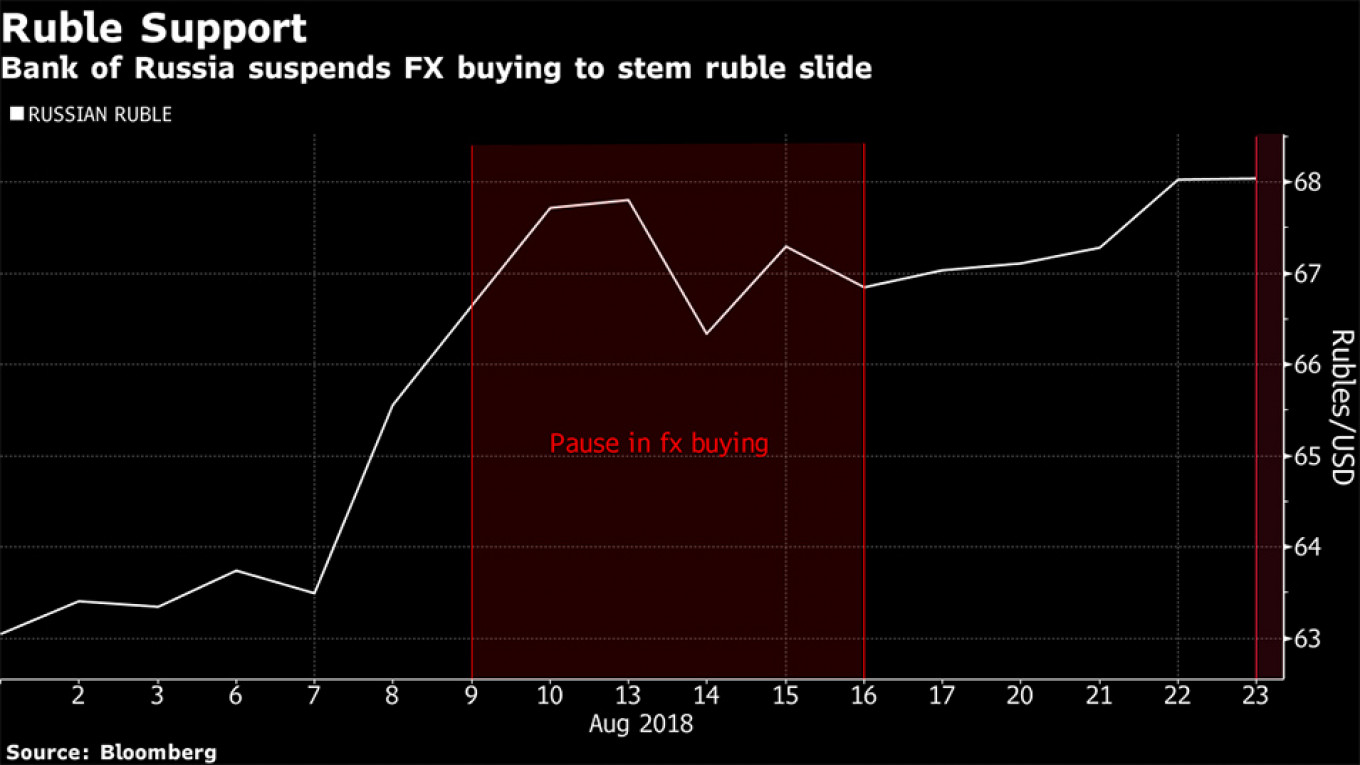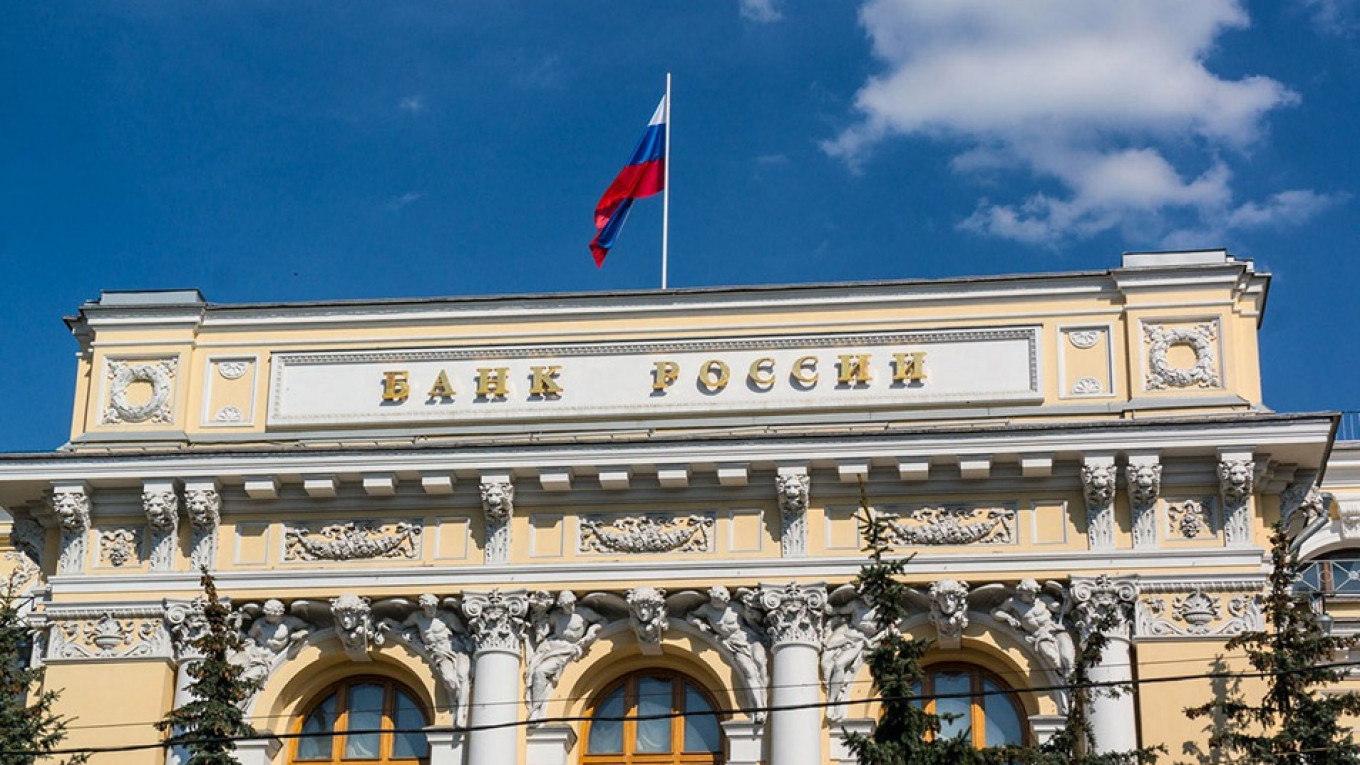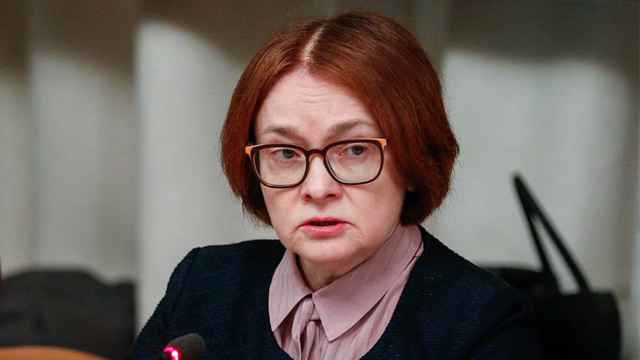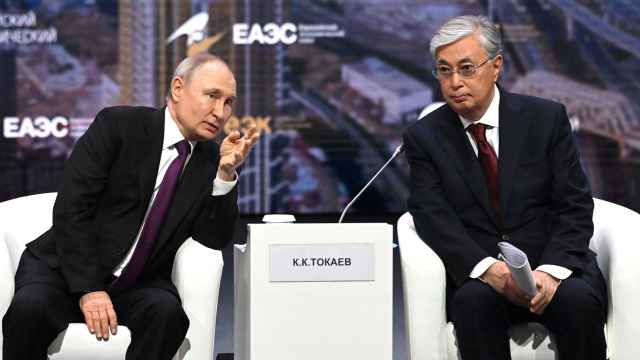Russia’s central bank said it will suspend sales of rubles to purchase foreign exchange through the end of September in an effort to steady the currency, helping pull it back from the lowest level in two years.
The move was the most dramatic official step yet to stem the currency’s declines, which have picked up in recent days amid growing fears of U.S. sanctions. Alarm over the impact of possible new restrictions being discussed in Washington has spread beyond financial markets, with the government saying Wednesday it will have to trim economic growth forecasts for this year because of the turmoil and surging outflows of capital.
The central bank’s announcement was the first time the regulator has given a time frame for staying out of the market since the foreign-exchange-buying program began in early 2017.
“This decision was made in order to increase the predictability of monetary authorities’ actions and to reduce volatility on financial markets,” the central bank said in a statement Thursday. It said the decision to resume foreign-exchange purchases “would be made depending on the situation on financial markets over the course of September.”
Reserve buildup
The central bank sells rubles to buy foreign currency for the Finance Ministry to build up reserves under a fiscal rule aimed at insulating the economy from volatility in oil prices. The regulator had suspended its transactions for six days earlier this month when the ruble was falling, but resumed them on Aug. 17 in larger volumes. On Tuesday, the central bank sold 20.1 billion rubles ($293 million). The Finance Ministry said the pause wouldn’t affect its accumulation of reserves under the fiscal rule.

“The central bank had to step in as this was getting a bit too uncomfortable,” said Edwin Gutierrez, the London-based head of emerging-market sovereign debt at Aberdeen Standard Investments. “Now we need a better overall emerging-market environment for that to be enough to support the ruble.”
The ruble fell as far as 69.01 per dollar Thursday, the lowest since early 2016, but rebounded after the central bank’s announcement to trade as much as 0.9 percent stronger, making it the only major emerging-market currency to gain versus the dollar on Thursday. The ruble later trimmed the advance and was down 0.2 percent at 68.1850 as of 6:48 p.m. in Moscow.
“The central bank’s decision to put on hold foreign-currency purchases on behalf of the Finance Ministry will ease the selling pressure on the ruble,” Rabobank emerging-market currency strategist Piotr Matys said. “However, the prospect of the U.S. imposing far harsher sanctions that would have negative consequences for the Russian financial sector should keep the bias skewed toward further ruble depreciation in coming weeks.”
Forecast Cut
Sanctions are compounding the impact of turmoil in Turkey, Argentina and Brazil, putting the Russian economy on track to grow 1.8 percent in 2018, down from an earlier projection of 1.9 percent, Economy Minister Maxim Oreshkin told reporters in Sochi late Wednesday. “All of this is clearly affecting the Russian market,” he said.
Updated forecasts to be released next week will show a smaller gain in gross domestic product this year and a weaker ruble than anticipated, with outflows accelerating in the next 12 months, he said.
Investors have been fleeing Russian government bonds, as well, forcing the Finance Ministry to cancel its auction this week, the first time since April.
A Message from The Moscow Times:
Dear readers,
We are facing unprecedented challenges. Russia's Prosecutor General's Office has designated The Moscow Times as an "undesirable" organization, criminalizing our work and putting our staff at risk of prosecution. This follows our earlier unjust labeling as a "foreign agent."
These actions are direct attempts to silence independent journalism in Russia. The authorities claim our work "discredits the decisions of the Russian leadership." We see things differently: we strive to provide accurate, unbiased reporting on Russia.
We, the journalists of The Moscow Times, refuse to be silenced. But to continue our work, we need your help.
Your support, no matter how small, makes a world of difference. If you can, please support us monthly starting from just $2. It's quick to set up, and every contribution makes a significant impact.
By supporting The Moscow Times, you're defending open, independent journalism in the face of repression. Thank you for standing with us.
Remind me later.






